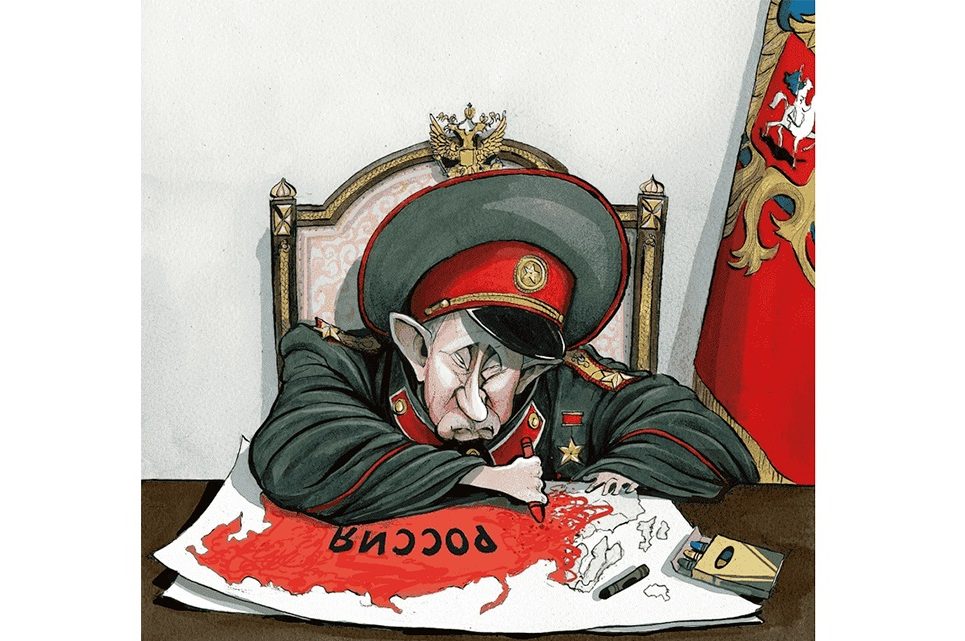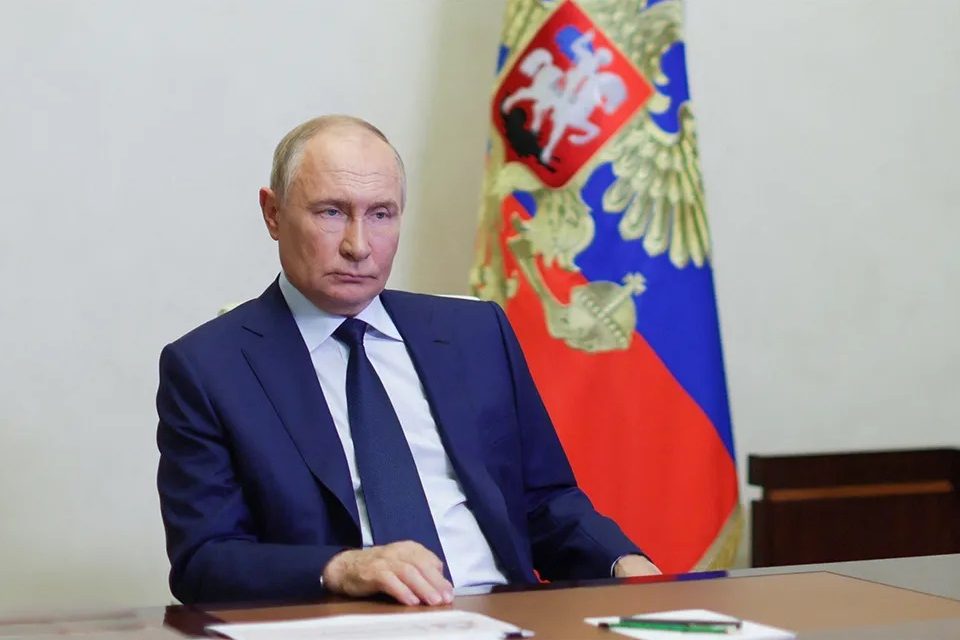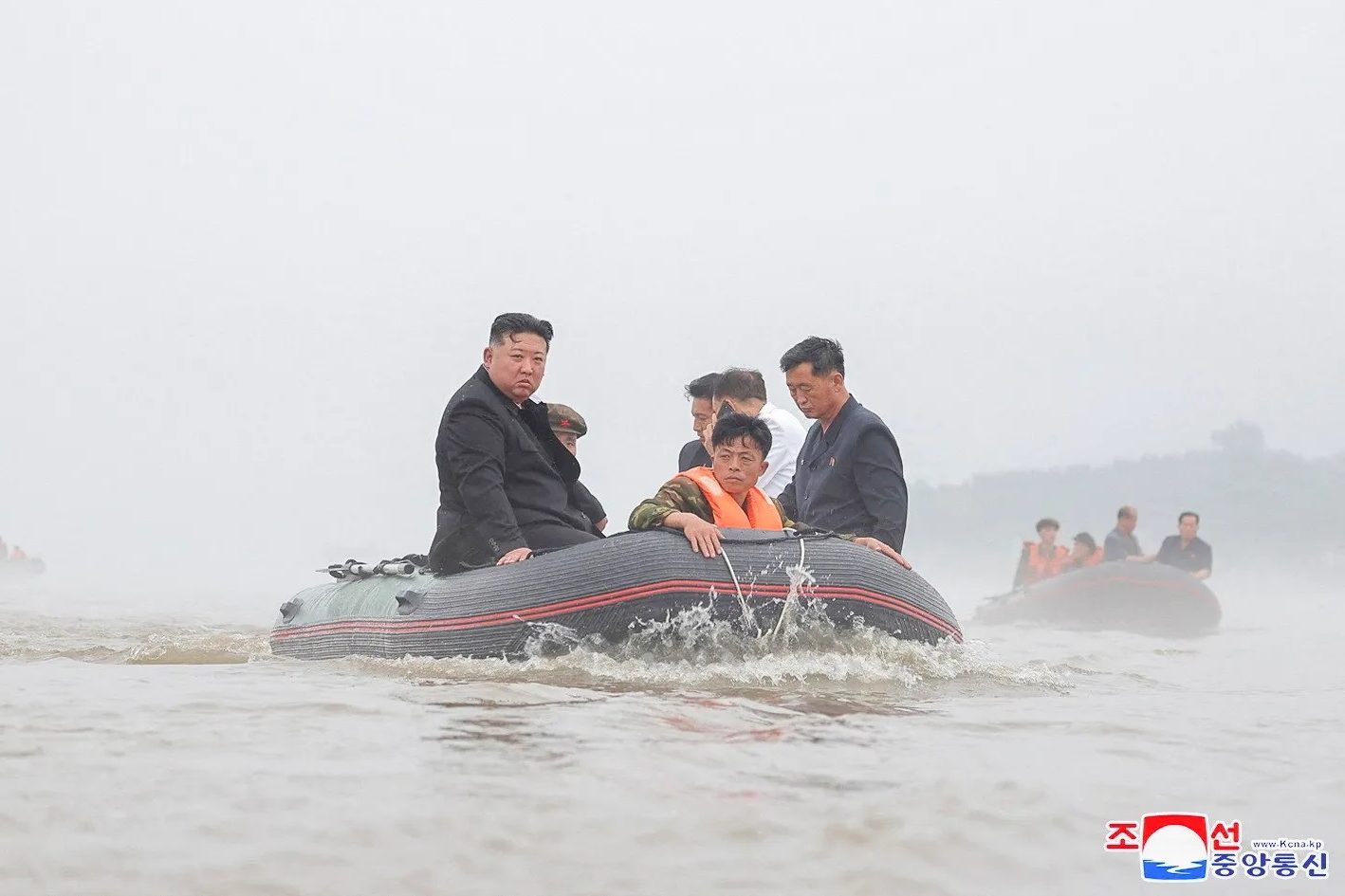On September 1, 2021, six months before his full-scale invasion of Ukraine, Vladimir Putin was speaking at the All-Russian Children’s Center, known as “Ocean,” near the harbor city of Vladivostok. He turned to a topic that obviously haunted him during his long Covid-19 isolation. He told his audience of children that Russia’s population could have been about half a billion today, rather than the current 146 million, if it hadn’t been for the shocks of the past century: two world wars, the Bolshevik Revolution and the collapse of the Soviet Union.
Having a smaller population can make a country richer, but never more powerful
A country’s population, Putin said, is “the total power of the state, which is exponentially increasing,” creating a “more and more powerful foundation for development, existence, wellbeing.” He concluded that no such calamitous interruptions to Russia’s recovery could ever be allowed again.
His message, however, was not “no more wars” but instead that the state should do everything possible to reverse the population decline. If the policies to increase Russia’s low birth rates do not work, something else must be tried. Having a smaller population can make a country richer (per capita, anyway) but never more powerful.
Watching this video of Putin today prompts the question: what explains the decision to invade Ukraine? Was it fear of democracy (i.e. the anti-oligarch reforms in Ukraine) or fear of demography? “Russia is not fighting for land,” says Mykhailo Podolyak, an adviser to Volodymyr Zelensky. Could it be the Ukraine war is about fighting for people? And if so, what might this say about when and how the war might end?
Putin’s anxiety fits what Hans Magnus Enzensberger, the German poet and essayist, defined almost three decades ago as “demographic bulimia” — the bottled-up panic triggered by the fear “that too many and too few people could simultaneously exist in the same territory.” A feeling that, if birth rates continue as they are, there will be too few of us and too many of them.
The benefits of economic growth and the advances in medicine mean the world population has quadrupled to eight billion over the past century, but around 1960 birth rates started to fall everywhere. The EU is believed to have reached its demographic peak this year. Last year, China was confronted with the consequences of its one-child policy as it saw a decline in working-age population.
Many countries will confront the problem of ageing and shrinking populations in coming decades. Demographic trends will trigger major power shifts. By 2060, Africa is expected to have a larger population than all of today’s high-income countries and China. Russia is expected to be both a territorial giant and a population dwarf. In 2039 its population is projected to decline to fewer than 140 million people, which is smaller than the current populations of Nigeria, Brazil, Pakistan or Ethiopia. For somebody like Putin, who thinks about population not simply in economic but also security terms, this decline translates as an irreversible loss of power.
If the imperialist wars of yesterday were motivated by fears that growing populations would lack adequate natural resources, analogous wars today tend to be fueled by worries that the aggressor nation contains too few people to take advantage of easily accessible resources. It is emblematic that Russia’s war in Ukraine has involved the large-scale abduction of children, particularly orphans, who have been forcibly transported to Russia and adopted by Russian parents on the basis of rushed-through legislation. These so-called “new Russians” were central to the way Putin was defining the objectives of his “special military operation.” Ukrainians were seen as “the reserve Russians,” destined not only to increase Russia’s population but also to prevent the decline of the country’s Slavic majority. The attempts to counteract the shrinkage of the Russian population by incorporating tens of millions of inhabitants of Ukraine and Belarus recall the “mourning wars” among Native Americans who, in the seventeenth and eighteenth centuries, tried in vain to compensate for their radically depleting numbers by kidnapping women and children from neighboring tribes.
Nicholas Eberstadt, who studies Russian demographics at the American Enterprise Institute, says “the most successful population program the Kremlin has had has been annexing neighboring territories, not increasing the birth rate.” The biggest single boost to Russia’s population in recent years came when the country annexed Crimea from Ukraine in 2014, adding 2.4 million inhabitants. Demographic anxiety is by no means the sole explanation for Russia’s invasion of Ukraine, but it is the most neglected one. It also reveals the tragic failure of Putin’s war. According to western estimates at least 150,000 Russian soldiers have been killed so far in the war in Ukraine. We can add to this the 600,000 Russians who have left the country since the conflict began. The war has also dramatically reduced the inflow of labor migrants from Central Asian countries, causing painful labor shortages in Russia. At one point, pro-Kremlin experts were seriously discussing the possibility of importing a million labor migrants from North Korea.
If demography is a major reason for Putin’s invasion of Ukraine, it will be key for predicting his war strategy. Contrary to the conventional wisdom, the Kremlin fears a long war. The Russian military has a major manpower advantage over Ukraine, and recent Russian advances are explained by its high tolerance of casualties, but if the war is prolonged for several more years, Russia will be devastated economically and demographically. Which makes me think that those predicting that Russia could be ready to negotiate the end of the war next year are probably not entirely wrong.
This article was originally published on The Spectator’s UK website.


























Leave a Reply